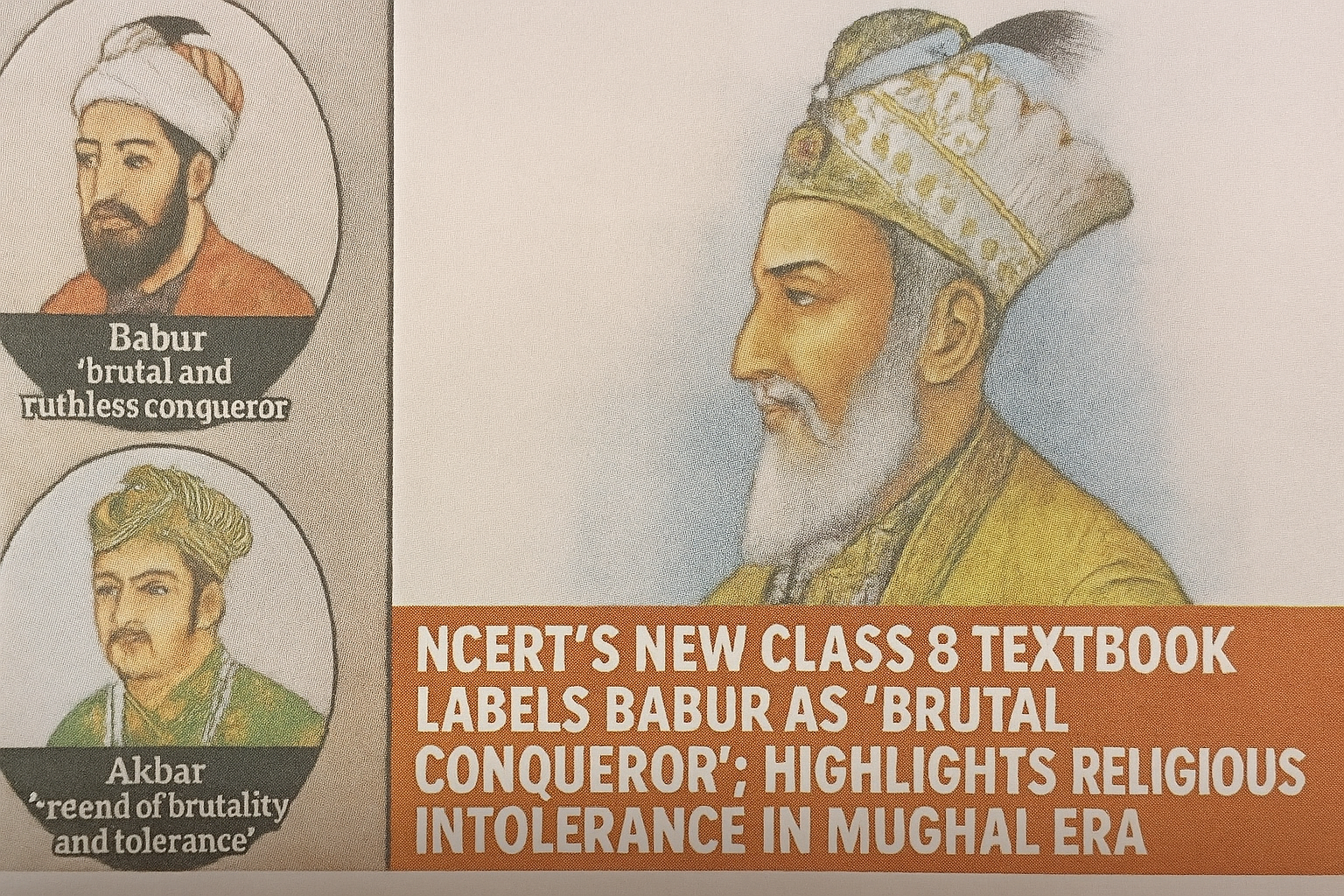NCERT’s New Class 8 Textbook Labels Babur as ‘Brutal Conqueror’; Highlights Religious Intolerance in Mughal Era
New Delhi, July 16 – The National Council of Educational Research and Training (NCERT) has introduced major changes in its newly updated Class 8 Social Science textbook, describing Mughal emperors like Babur, Akbar, and Aurangzeb in a significantly different light than earlier editions.
The updated history content appears to reflect a shift in how the Delhi Sultanate and Mughal period are taught in Indian classrooms. In a marked departure from previous versions, the book labels Babur as a “brutal and ruthless conqueror” and discusses in detail the destruction of temples and gurdwaras by Aurangzeb, while describing Akbar's rule as a mix of tolerance and brutality.
Babur Described as Ruthless
The new textbook states that Babur slaughtered entire populations of cities during his conquests in India, portraying him not only as a strategic ruler but as a monarch whose invasions brought widespread bloodshed.
This is a noticeable contrast to earlier NCERT textbooks, which offered a relatively neutral account of Babur's reign, focusing largely on his military strategies and establishment of the Mughal dynasty.
Akbar's Legacy Recast
While Akbar has long been remembered for his policies of religious integration and tolerance, the new edition emphasizes that his reign also involved acts of brutality, including violence against those who resisted Mughal rule.
The book describes his era as a "blend of brutality and tolerance," presenting a more nuanced perspective that recognizes both Akbar’s reforms and the military suppressions carried out under his leadership.
Aurangzeb and Religious Intolerance
The updated content on Aurangzeb is especially direct. The chapter highlights instances where Aurangzeb ordered the destruction of Hindu temples and Sikh gurdwaras, painting a vivid picture of religious intolerance during his rule.
His controversial policies, which included banning certain Hindu practices and imposing higher taxes on non-Muslims, are now presented with specific examples. These include temple desecration orders and suppression of non-Islamic faiths, which the textbook states “provoked widespread resentment.”
A Cautionary Note on Historical Accountability
While the book goes into detail about the religious conflicts and violence during medieval rule, it also includes a cautionary note for readers:
“No one should be held responsible today for events of the past.”
This disclaimer appears to be an effort to prevent communal misinterpretations or misuse of historical narratives for modern political purposes.
Broader Changes Underway
This revision is part of NCERT's ongoing efforts to revise school curricula in line with the National Education Policy (NEP) 2020, which aims to make educational content more holistic, rooted in Indian traditions, and critical-thinking oriented.
These changes have sparked debate across academic and political circles, with some welcoming the “truthful representation of history”, while others caution against the selective reinterpretation of facts.
TheTrendingPeople.com’s Final Thoughts
The reimagining of Mughal history in NCERT textbooks raises important questions about how young Indians are taught their past. While acknowledging historical truths is vital, educators and policymakers must tread carefully to ensure historical context isn’t reduced to communal blame. As India advances, understanding the past should foster unity—not division.

